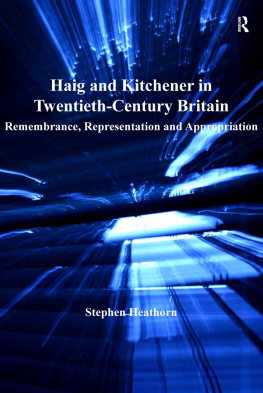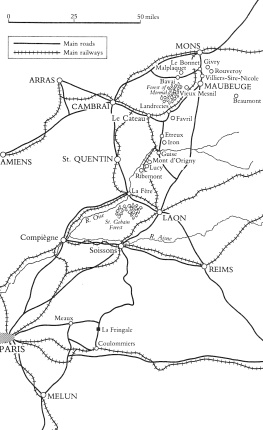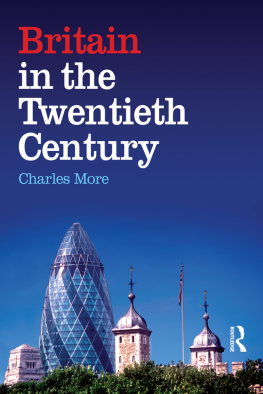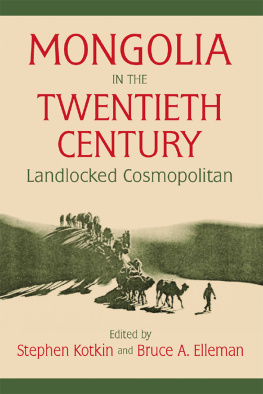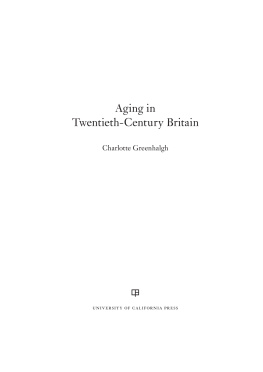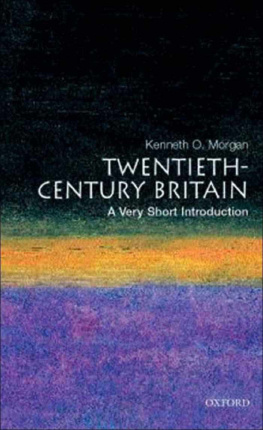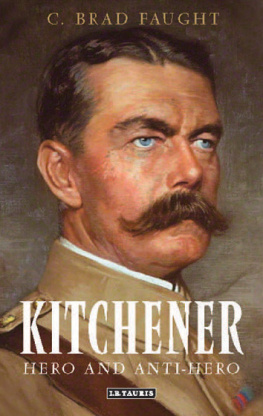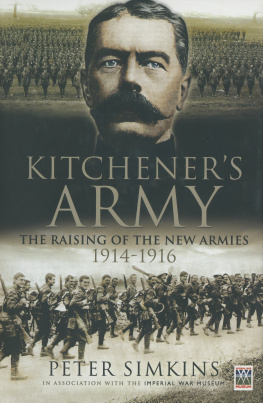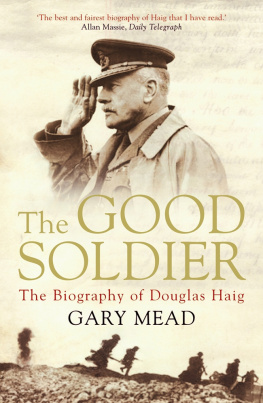HAIG AND KITCHENER IN TWENTIETH-CENTURY BRITAIN
To my son Nigel, who was born a few months after this book was started, and to my daughter Adrienne, who was born a few months before it was finished.
Haig and Kitchener in Twentieth-Century Britain
Remembrance, Representation and Appropriation
STEPHEN HEATHORN
McMaster University, Canada
First published 2013 by Ashgate Publishing
Published 2016 by Routledge
2 Park Square, Milton Park, Abingdon, Oxon OX14 4RN
711 Third Avenue, New York, NY 10017, USA
Routledge is an imprint of the Taylor & Francis Group, an informa business
Copyright 2013 Stephen Heathorn
All rights reserved. No part of this book may be reprinted or reproduced or utilised in any form or by any electronic, mechanical, or other means, now known or hereafter invented, including photocopying and recording, or in any information storage or retrieval system, without permission in writing from the publishers.
Stephen Heathorn has asserted his right under the Copyright, Designs and Patents Act, 1988, to be identified as the author of this work.
Notice:
Product or corporate names may be trademarks or registered trademarks, and are used only for identification and explanation without intent to infringe.
British Library Cataloguing in Publication Data
Heathorn, Stephen J., 1965-
Haig and Kitchener in twentieth-century Britain :
remembrance, representation and appropriation.
1. Kitchener, Horatio Herbert Kitchener, Earl, 1850-1916.
2. Haig, Douglas, Sir, 1861-1928. 3. World War, 1914-1918
Historiography. 4. World War, 1914-1918 Public opinion.
5. Public opinion Great Britain History 20th century.
6. Memorialization Great Britain.
I. Title
940.4'6'0941-dc23
The Library of Congress has cataloged the printed edition as follows:
Heathorn, Stephen J., 1965-
Haig and Kitchener in twentieth-century Britain : remembrance, representation and appropriation / By Stephen Heathorn.
pages cm
Includes bibliographical references and index.
ISBN 978-0-7546-6965-4 (hardcover) ISBN 978-1-4094-6608-6 (ebook) 1. Kitchener, Horatio Herbert Kitchener, Earl, 1850-1916. 2. Haig, Douglas Haig, Earl, 1861-1928. 3. World War, 1914-1918 Historiography. 4. Marshalls Great Britain Biography. I. Title.
DA68.32.K6H43 2013
940.4'1241 dc23
2012036090
ISBN 9780754669654 (hbk)
ISBN 9781315586076 (ebk)
Contents
List of Figures
Acknowledgements
This book has taken far too long to put together, and as a consequence I have a large number of people to thank. First, I wish to acknowledge the Social Sciences and Humanities Council of Canada for providing funding that allowed me to consult libraries and archives in (predominantly) Britain, but also in Canada, Australia and New Zealand. In all four countries I received assistance from innumerable librarians and archivists, for which I am grateful. Second, I would like to thank my publishers, Ashgate, and in particular, Emily Yates, for being so patient with me during the slow progress of the project, especially over the past two years, and to the peer reviews for their charitable assessments. Third, portions of this book were read by generous friends at different stages of completion. I wish to thank Matthew Hendley, David Leeson, Keith Surridge, Ryan Vieira and John Weaver for their excellent observations and suggestions. Special recognition needs to be given to Pamela Swett, who read passages at short notice and has always given me stellar advice and encouragement. Fourth, a number of current and former students helped me with some research assistance much of which, unfortunately, could not be crammed into the book at various times over the long gestation of this project, and I want to acknowledge for their help Ron Collier, Hannah Elias, Wes Ferris, Michele Haapamaki, Greg Pahulje, Danielle Robinson and Bonnie White.
Thanks also go to the many, many others that have offered help, advice, friendship and good company while I researched or presented elements of the book. To list them all would be excessive, so please excuse me for naming only a few of the people who put up with me more than most: Sascha Auerbach, Stephen Brooke, Anne Clendinning, Paul Deslandes, Tim Jenks, Max Jones, Marjorie Levine-Clark, Greg Smith, Janet Watson and Pete Yeandle. I would also like to acknowledge the students and faculty of the Southern Ontario Modern British History Seminar for the stimulating discussions over the past few years, the nascent Manchester group on imperial reputations, and also to thank all my colleagues and students in the Department of History at McMaster University for providing a collegial environment in which to teach, research and write.
Finally, I would like to express my love and gratitude to my family Sherisse, Nigel and Adrienne for the support that sustains me daily, and my sadness at the passing of Dudley with whom I often worked out problems in the book while on our walks together. All that is good and worthy in this book can be traced back to the assistance that I have received from all the above; for the rest, I take responsibility.
Maney Publishing granted permission to republish some material from my article, A Great Grey Dawn for the Empire: Great War Conspiracy Theory, the British State and The Kitchener Film (19211926), War and Society, 26/2 (October 2007): 5171. This is to be found in was published in The Long Retreat of the Stone Generals: Imperial Memory, Decolonization and the Repatriation of Monuments from Sudan, 195660, Studies in Ethnicity and Nationalism, Special Issue 2005: Nation and Empire (Summer 2005): 4361.
Chapter 1
Introduction
When the news came through, and the men and women of the Empire read Admiral Sir John Jellicoes brief particulars of the tragedy, they were staggered by the suddenness of it Soldiers betrayed emotion and were not ashamed; politicians, priests, and kings spoke of [Kitcheners] great qualities and splendid achievements.
No man who can possible fill the place vacated by the untimely death of our greatest man The prestige and the universally acknowledged fame of this one man inspired the whole nation with confidence, as he had but to express a wish, and however much his colleagues in the Cabinet objected, they dare not openly oppose him; as [Kitcheners] will was the peoples will.
Earl Haig was monumentally British; but by his incomparable devotion to duty, his military talent, his conscience supreme, and his chivalry and magnanimity, he made a deep impression on other peoples; and thus his death drew forth almost innumerable heart-felt condolences from every corner of the civilized world.
Haig will stand alone and without rival as the greatest of the great soldiers who led the armies of their country to battle in the gigantic conflict waged in France and Belgium.
Today, neither Field Marshal Earl Kitchener nor Field Marshal Earl Haig popularly enjoys a heroic reputation. This was not always the case. The deaths of both of these figures prompted an outpouring of emotion and grief only rarely witnessed in British national life. As the appreciations quoted above indicate, glowing tributes and calls for the commemoration of these national and imperial heroes were heartfelt and widespread. Yet with the passage of time, much damage was done to these mens reputations. This book explores some of the representations over the course of the twentieth century of these two paramount British military figures of the First World War: Herbert Horatio Kitchener, the Secretary of State for War during the first two years of the conflict; and Douglas His point is insightful. And while it is tinged with nostalgia and oversimplifies the processes that turned wartime heroes into villains, this book seeks to elucidate the elements of truth in Bournes observation.


